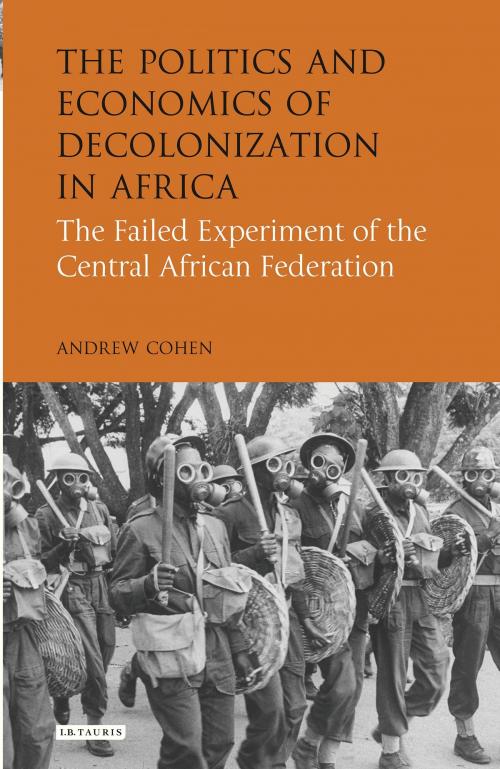The Politics and Economics of Decolonization in Africa
The Failed Experiment of the Central African Federation
Nonfiction, History, Africa, Social & Cultural Studies, Political Science| Author: | Andrew Cohen | ISBN: | 9781786722164 |
| Publisher: | Bloomsbury Publishing | Publication: | May 26, 2017 |
| Imprint: | I.B. Tauris | Language: | English |
| Author: | Andrew Cohen |
| ISBN: | 9781786722164 |
| Publisher: | Bloomsbury Publishing |
| Publication: | May 26, 2017 |
| Imprint: | I.B. Tauris |
| Language: | English |
The slow collapse of the European colonial empires after 1945 provides one of the great turning points of twentieth century history. With the loss of India however, the British under Harold Macmillan attempted to enforce a 'second' colonial occupation - supporting the efforts of Sir Andrew Cohen of the Colonial Office to create a Central African Federation. Drawing on newly released archival material, The Politics and Economics of Decolonization offers a fresh examination of Britain's central African territories in the late colonial period and provides a detailed assessment of how events in Britain, Africa and the UN shaped the process of decolonization. The author situates the Central African Federation - which consisted of modern day Zambia, Zimbabwe and Malawi - in its wider international context, shedding light on the Federation's complex relationships with South Africa, with US Presidents Dwight Eisenhower and John F. Kennedy and with the expanding United Nations. The result is an important history of the last days of the British Empire and the beginnings of a more independent African continent.
The slow collapse of the European colonial empires after 1945 provides one of the great turning points of twentieth century history. With the loss of India however, the British under Harold Macmillan attempted to enforce a 'second' colonial occupation - supporting the efforts of Sir Andrew Cohen of the Colonial Office to create a Central African Federation. Drawing on newly released archival material, The Politics and Economics of Decolonization offers a fresh examination of Britain's central African territories in the late colonial period and provides a detailed assessment of how events in Britain, Africa and the UN shaped the process of decolonization. The author situates the Central African Federation - which consisted of modern day Zambia, Zimbabwe and Malawi - in its wider international context, shedding light on the Federation's complex relationships with South Africa, with US Presidents Dwight Eisenhower and John F. Kennedy and with the expanding United Nations. The result is an important history of the last days of the British Empire and the beginnings of a more independent African continent.















